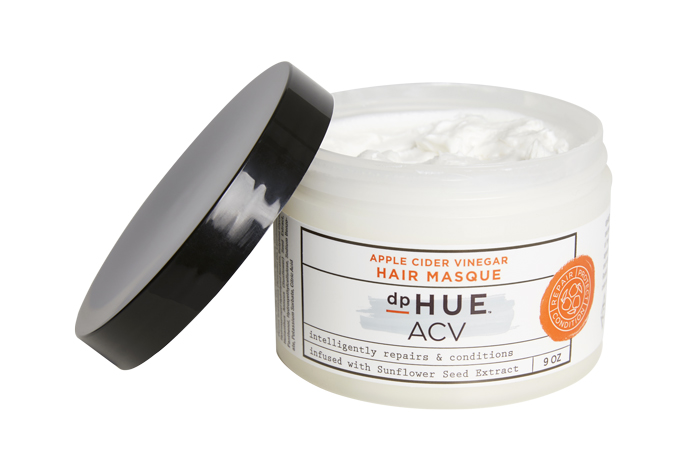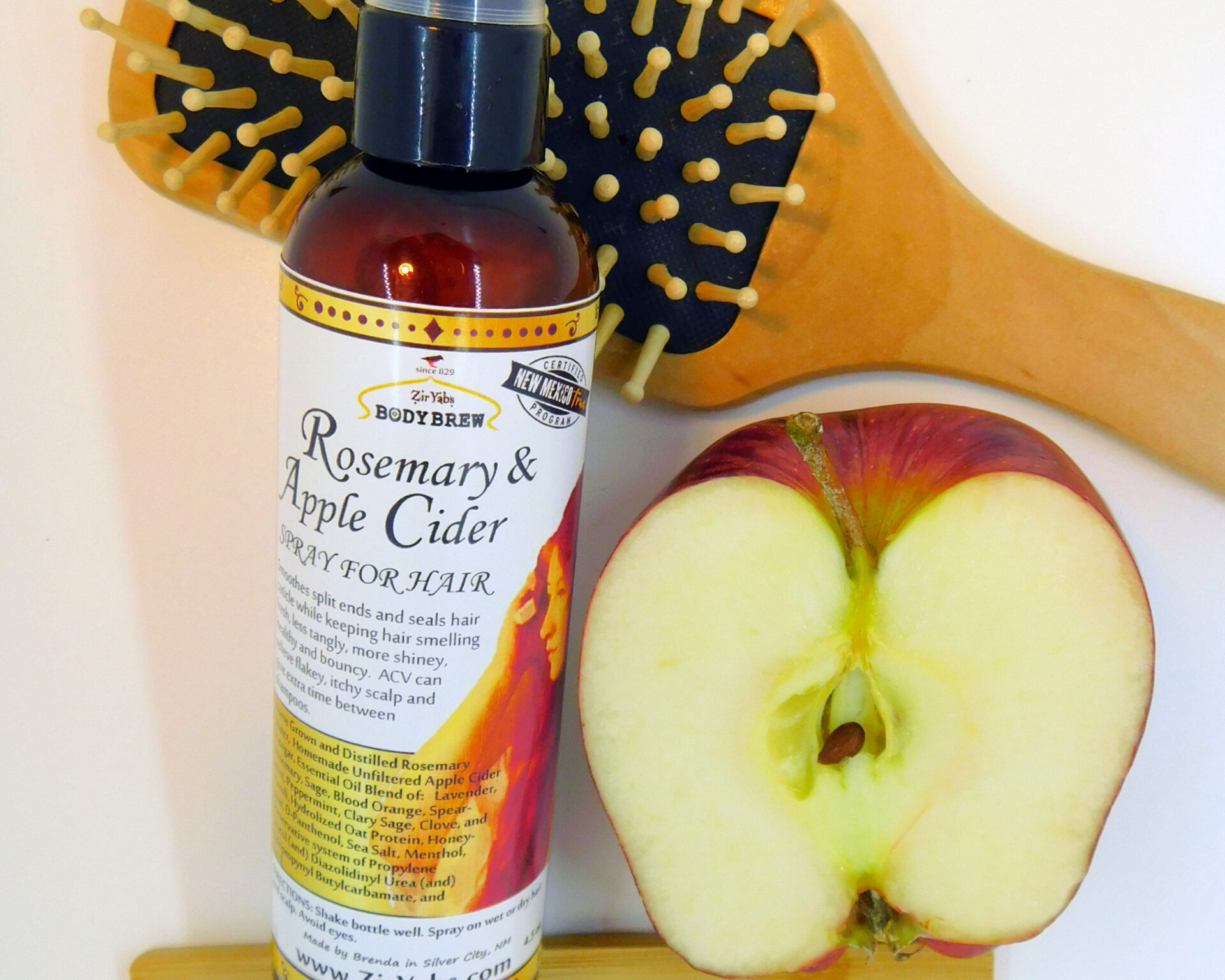Table Of Content

What’s more, it contains bacteria-fighting tea tree oil to ward off dandruff and ginger root extract to prevent free radical damage. If you're new to apple cider vinegar and a bit intimidated about diving into raw application, a great way to ease into the process is through hair products with ACV already infused into its formulas. Luckily, the promise of commercial-level shine and volume is more than a little enticing, so the market is chock-full of them. One of the best conditioners for coily hair, SheaMoisture Jamaican Black Castor Oil Rinse Out Conditioner, contains apple cider to help with detangling.
Best Apple Cider Vinegar in India for Your Inside Out Health - The Economic Times
Best Apple Cider Vinegar in India for Your Inside Out Health.
Posted: Fri, 12 Apr 2024 07:00:00 GMT [source]
DIY ACV hair care recipes for radiant locks
Here's a good place to start, and from here you can adjust based on your personal experience. No matter the way you use it, be sure to let it sit on the hair for upwards of a few minutes before you rinse it out. Another easy option is a clean condiment bottle with a pointed nozzle to better get under the hair and directly on the scalp.
How to Use Apple Cider Vinegar as Soothing Hair and Scalp Rinse
The acidity in apple cider vinegar cleanses in a deeper way than most shampoos and might be a helpful addition to your haircare rotation. Be prepared for a super-clean feeling unlike anything you have felt before. Aloe vera is well known for its soothing properties; combined with apple cider vinegar, it can make a good pre-shampoo treatment for dandruff-prone hair. To make this shampoo recipe, place six to eight soap nuts in a muslin bag and add to a saucepan containing 3 cups of water. Since apple cider vinegar works to balance the pH of the hair and scalp, it leaves it primed for functioning optimally, notes Federico. “When the scalp functions optimally, it produces less oil,” he says.

Ingredients:
Its ability to balance the scalp's pH also creates an unfavourable environment for dandruff-causing fungi. By smoothing down hair cuticles, ACV helps to reduce frizz and increase manageability. This makes hair easier to style and maintain, particularly in humid conditions. Full of vitamin B, biotin, folic acid, and Vitamin C, apple cider vinegar can help with dandruff, dullness, and frizz, and provide a sensitive cleanse. Once the solution is applied and the hair is saturated, use your fingers to massage it in. If you have a particularly dry, itchy scalp, give your scalp a little extra love.
I Washed My Hair With Apple Cider Vinegar—Here’s What Happened
However, many stylists specifically recommend the treatment for anyone with fine, limp, lifeless hair that tends to get oily in particular. “This type of hair can benefit immensely from ACV because it helps rid the hair of oil and product buildup to give volume and lift,” says Haygood. For example, ACVs ability to possibly lower pH in order to improve hair health is legit. One study on shampoo pH reported that high alkalinity can add to hair breakage, friction, and dryness.
Apple cider vinegar rinses are super helpful for these hair types, says Jordan. “The apple cider vinegar will naturally remove buildup while infusing hair with hydration and sealing down the outer layer of the hair. This treatment won’t weigh down the neutral fibers like other conditioning masks,” she says. Personal sensitivities aside, ACV is considered safe for all hair types and textures, even color treated, according to McKnight. “It works especially well for anyone who uses a lot of products, like dry shampoo and hairspray. It’s used to help clarify the scalp from product and oil buildup, and to rebalance the pH on your scalp for stronger and healthier-looking hair.” But don’t get scrub-happy, she strongly advises.

Infused with a farm-fresh-inspired blend of apple cider vinegar, we're all about this Aveeno rinse that clarifies your tresses to enhance your hair's natural shine. We're also super into Aveeno's shampoo duo from the same collection, which has just the right dosage of ACV to be gentle enough for everyday use. Pure ACV is strong, so you can't simply pour a bottle of it onto your head. Not only will that end up stripping your hair, but the acidic nature could also irritate and burn your scalp.
Ways to Add Apple Cider Vinegar to Your Hair Care Routine
5 benefits of apple cider vinegar for hair - Hindustan Times
5 benefits of apple cider vinegar for hair.
Posted: Wed, 04 Oct 2023 07:00:00 GMT [source]
We often hear of ACV being a go-to for busting belly bloat or making a healthy salad dressing, but apple cider vinegar is good to reach for when your mane is out of whack and needs a reset. And even though it comes with a pungent, well, smell, the beauty benefits far outweigh the temporary nose discomfort. Tone down the smell of apple cider vinegar with some sweet-smelling rosewater. This ingredient has anti-inflammatory properties and may help soothe a dry, itchy scalp. Rosemary essential oil is high in antioxidants and anti-inflammatories. To make this rinse, bring 4 cups of water to a boil and then cool.
Relieves Itchy Scalp and Dandruff
Studies even show that when your hair is balanced around this range, it can reduce frizz and damage1. Because ACV has the ability to balance our scalp's pH and effectively clear any inflammation within our hair follicles, overall the ingredient is working to reduce hair loss. ACV is strengthening our strands through use overtime and bringing more balance to our scalp, therefore less stress is put on the area. ACV’s removal of grease, environmental pollutants, and product buildup gives the scalp and hair follicles a clean slate to grow new hair.
Apple cider vinegar contains "alpha-hydroxy acids like lactic, citric, and malic acids," noted board-certified dermatologist Keira Barr, M.D. When applied topically, these acids work to "exfoliate the uppermost layers of the skin." When apple cider vinegar is applied to the scalp, it removes many “bad” things such as product buildup, excess sebum, dandruff flakes, and microbes. Along with the bad, though, some good things are removed, too.
Add an essential oil of your choice—sweet orange, tea tree, lavender, or bergamot essential oils work well. Mix 2 cups of water with 4 tablespoons of apple cider vinegar. This can be poured over your scalp and hair after shampooing. Olive oil has excellent moisturizing qualities, so the combination with apple cider vinegar will make a great deep conditioner for dry hair. Use it once a week to improve your hair's softness and strength. “The best way to use an ACV shampoo and conditioner is to lather and massage into wet hair for about two minutes,” he says.
These treatments that emit red- or near-infrared light are believed to stimulate hair follicles to help hair grow, with a lower risk of side effects compared to topical creams and oral medications. If you often wear a hairstyle like braids or a tight bun that puts prolonged strain or stress on the hair follicle, that can cause a type of permanent hair loss called traction alopecia. Male-pattern hair loss is what causes a receding hairline and baldness in men. In women, female-pattern hair loss typically affects the crown or top of the head first, Mirmirani says. Women may notice that their part is becoming wider or that their scalp is more visible. The most common cause of alopecia is an inherited condition called male- or female-pattern hair loss.
Doctors often prescribe oral medications to be used along with topical minoxidil because studies show the combination boosts hair production. Low-dose oral minoxidil (prescribed off-label) has been found to be effective and safe for most patients, Mirmirani says. Other oft-used drugs include finasteride (Propecia) and spironolactone. If you have scarring alopecia or alopecia areata, your doctor may recommend an anti-inflammatory medication such as the JAK inhibitor Olumiant (baricitinib) to help tamp down your immune system.
According to Fitzsimons, when apple cider vinegar is applied to the hair, it coats the cuticle which leaves the hair shinier and smoother. This is especially beneficial for those with textured hair types that tend to be frizz-prone. Apple cider vinegar contains acetic acid, which in high concentrations can irritate or even burn your skin. To avoid this, only apply diluted apple cider vinegar to your hair and scalp. You can rinse your hair with water afterwards, but there's no need.
No comments:
Post a Comment